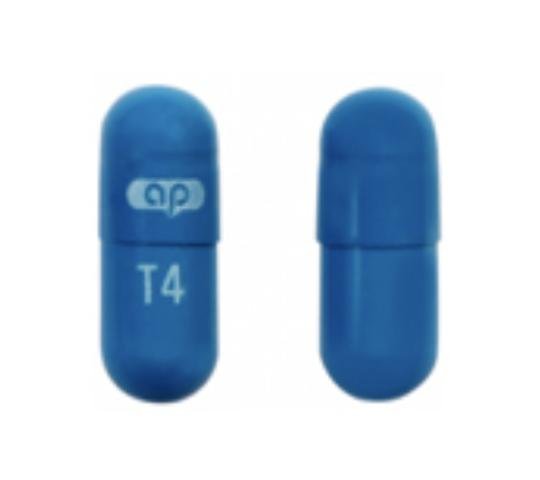Tolterodine Side Effects
Medically reviewed by Drugs.com. Last updated on Mar 19, 2023.
Applies to tolterodine: oral capsule extended release, oral tablet.
Serious side effects of Tolterodine
Along with its needed effects, tolterodine may cause some unwanted effects. Although not all of these side effects may occur, if they do occur they may need medical attention.
Check with your doctor immediately if any of the following side effects occur while taking tolterodine:
More common
- Abnormal vision, including difficulty with adjusting to distances
- bloody or cloudy urine
- difficult, burning, or painful urination
- frequent urge to urinate
Less common
- Chest pain
- chills
- cough
- diarrhea
- fever
- general feeling of discomfort or illness
- headache
- joint pain
- loss of appetite
- muscle aches and pains
- nausea
- pain or tenderness around the eyes and cheekbones
- shivering
- shortness of breath or troubled breathing
- sore throat
- stuffy or runny nose
- sweating
- tightness of the chest or wheezing
- trouble with sleeping
- vomiting
Incidence not known
- Being forgetful
- bloating or swelling of the face, arms, hands, ankles, lower legs, or feet
- confusion about identity, place, and time
- difficulty with swallowing
- dizziness
- fast, pounding, or irregular heartbeat or pulse
- hives
- itching
- large, hive-like swelling on the face, eyelids, lips, tongue, throat, hands, legs, feet, or sex organs
- mood or mental changes
- puffiness or swelling of the eyelids or around the eyes, face, lips, or tongue
- rapid weight gain
- seeing, hearing, or feeling things that are not there
- skin rash
- tingling of the hands or feet
- unusual tiredness or weakness
- unusual weight gain or loss
Other side effects of Tolterodine
Some side effects of tolterodine may occur that usually do not need medical attention. These side effects may go away during treatment as your body adjusts to the medicine. Also, your health care professional may be able to tell you about ways to prevent or reduce some of these side effects.
Check with your health care professional if any of the following side effects continue or are bothersome or if you have any questions about them:
More common
- Abdominal or stomach pain
- constipation
- drowsiness
- dry eyes
- dry mouth
- upset stomach
Less common
- Acid or sour stomach
- belching
- blurred vision
- difficulty with moving
- dizziness or lightheadedness
- dry skin
- fear or nervousness
- feeling of constant movement of self or surroundings
- heartburn
- indigestion
- sensation of spinning
- sleepiness or unusual drowsiness
- stomach discomfort
- weight gain
For Healthcare Professionals
Applies to tolterodine: oral capsule extended release, oral tablet.
Cardiovascular
Uncommon (0.1% to 1%): Palpitations, arrhythmia, abnormal ECG, hypertension
Very rare (less than 0.01%): Cardiac failure
Postmarketing reports: Tachycardia, peripheral edema, flushing[Ref]
Dermatologic
Common (1% to 10%): Dry skin, acne, rash/erythema
Postmarketing reports: Angioedema[Ref]
Gastrointestinal
Very common (10% or more): Dry mouth (35%)
Common (1% to 10%): Abdominal pain, constipation, diarrhea, dyspepsia, flatulence, ulcerated stomatitis
Frequency not reported: Gastroesophageal reflux, vomiting[Ref]
General
The most common adverse events reported were dry mouth, headache, constipation, vertigo/dizziness, and abdominal pain. Dry mouth, constipation, abnormal vision (accommodation abnormalities), urinary retention, and xerophthalmia are expected side effects of antimuscarinic agents.[Ref]
Genitourinary
Common (1% to 10%): Dysuria, urinary tract infection, micturition frequent
Uncommon (0.1% to 1%): Urinary retention[Ref]
Hypersensitivity
Uncommon (0.1% to 1%): Hypersensitivity not otherwise specified
Postmarketing reports: Anaphylaxis[Ref]
Immunologic
Common (1% to 10%): Influenza-like symptoms, infection[Ref]
Metabolic
Common (1% to 10%): Weight gain, abnormal alkaline phosphatase, enzyme abnormality[Ref]
Musculoskeletal
Common (1% to 10%): Arthralgia, leg pain[Ref]
Nervous system
Common (1% to 10%): Headache, vertigo/dizziness, migraine
Uncommon (0.1% to 1%): Paresthesia, memory impairment
Rare (0.01% to 0.1%): Convulsions[Ref]
Ocular
Common (1% to 10%): Abnormal accommodation, xerophthalmia, vision abnormal[Ref]
Other
Common (1% to 10%): Fatigue, chest pain, malaise, pain, fall[Ref]
Psychiatric
Common (1% to 10%): Somnolence, anxiety
Uncommon (0.1% to 1%): Nervousness
Postmarketing reports: Confusion, disorientation, memory impairment, hallucinations, aggravation of symptoms of dementia (e.g., confusion, disorientation, delusion) after therapy was initiated in patients taking cholinesterase inhibitors for the treatment of dementia[Ref]
Renal
Postmarketing reports: Renal dysfunction[Ref]
Respiratory
Common (1% to 10%): Sinusitis, asthma, bronchitis, coughing, dyspnea[Ref]
More about tolterodine
- Check interactions
- Compare alternatives
- Pricing & coupons
- Reviews (75)
- Drug images
- Dosage information
- During pregnancy
- Drug class: urinary antispasmodics
- Breastfeeding
- En español
Patient resources
- Tolterodine drug information
- Tolterodine (Advanced Reading)
- Tolterodine Tablets
- Tolterodine Extended-Release Capsules
Other brands
Professional resources
- Tolterodine monograph
- Tolterodine Tartrate Capsules (FDA)
- Tolterodine Tartrate ER Tablets (FDA)
- Tolterodine Tartrate Tablets (FDA)
Other brands
Related treatment guides
References
1. Product Information. Detrol (tolterodine). Pharmacia and Upjohn. 2001;PROD.
2. Cerner Multum, Inc. UK Summary of Product Characteristics.
3. Cerner Multum, Inc. Australian Product Information.
Further information
Always consult your healthcare provider to ensure the information displayed on this page applies to your personal circumstances.
Some side effects may not be reported. You may report them to the FDA.

